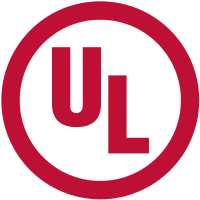FUNCTIONAL SAFETY
Functional safety is the critical part of the overall safety of a system or product that depends on the correct execution of specific commands and functions. As more and more products and systems incorporate complex microelectronics and software, it is increasingly challenging to assess and implement safety-related functions. Additionally, products and systems are becoming interconnected in more ways as the Internet of Things (IoT) becomes a reality in many domains such as the energy sector’s smart grids; the automotive industry’s connected vehicles and autonomous driving; the healthcare industry’s shift toward eHealth; consumer smart home products as well as the manufacturing industry’s own Industrial Internet of Things (IIoT), which includes robotics, industrial control systems (ICS), and smart factories and supply chains. UL is dedicated to helping customers navigate the complex technical and regulatory challenges of today’s functional safety landscape. With our extensive certification expertise and holistic approach to safety engineering and assessment, we can help customers identify, specify and determine the functional safety of products and systems to key standards and ratings such as: Safety Integrity Level (SIL) as defined by IEC 61508 and derived standards (such as IEC 62061, IEC 61511, IEC 61800-5-2 and IEC 61131-6) Performance Level (PL) as defined by ISO 13849 Automotive Safety Integrity Level (ASIL) as defined by ISO 26262 Class of control function as defined by IEC 60730-1. The benefits of working with UL Building on our safety science and engineering expertise in many different functional safety domains — including automation and machinery, signaling and alarm systems, medical devices, lighting, and appliances — UL provides customers with a single global partner for all safety challenges and specific market needs. Manufacturers, system integrators and suppliers around the world are able to take advantage of the full depth of our services, bundling traditional UL product safety investigations with our functional safety assessments for greater project efficiencies and speed to market. Whatever the need or challenge, UL can help determine the best assessment process for specific products, based on the reasons for conducting a functional safety assessment and/or a product’s intended use. Some European directives require a functional safety evaluation of specific products. Trade unions and regulatory bodies such as the U.S. Occupational Safety and Health Administration (OSHA) require or encourage a functional safety evaluation in addition to a traditional safety evaluation. Insurers also may require a functional safety evaluation before a customer installs equipment in a workplace, and may provide discounted premiums to customers who use products that have been evaluated for functional safety. UL is expertly qualified to help customers address these unique requirements and can help reinforce a point of differentiation in the marketplace through the use of the UL Mark, one of the most recognized symbols in the world. UL’s Marks for functional safety are available as a global, U.S., Canadian and/or European designation. UL is UKAS-accredited and a Notified Body (NB) for the (EU) Machinery Directive. UL’s functional safety Marks puts the safety rating — such as the Safety Integrity Level (SIL) or Performance Level (PL) — directly associated with our Marks, making it easier for users and interested parties to understand exactly what and how the product and/or function has been certified.Visit the UL International (UK) Ltd website for more information on FUNCTIONAL SAFETY






